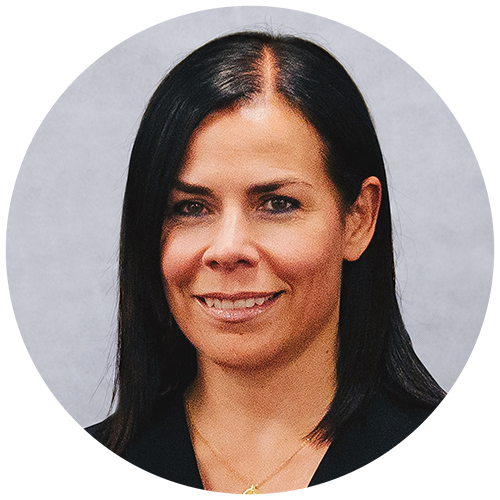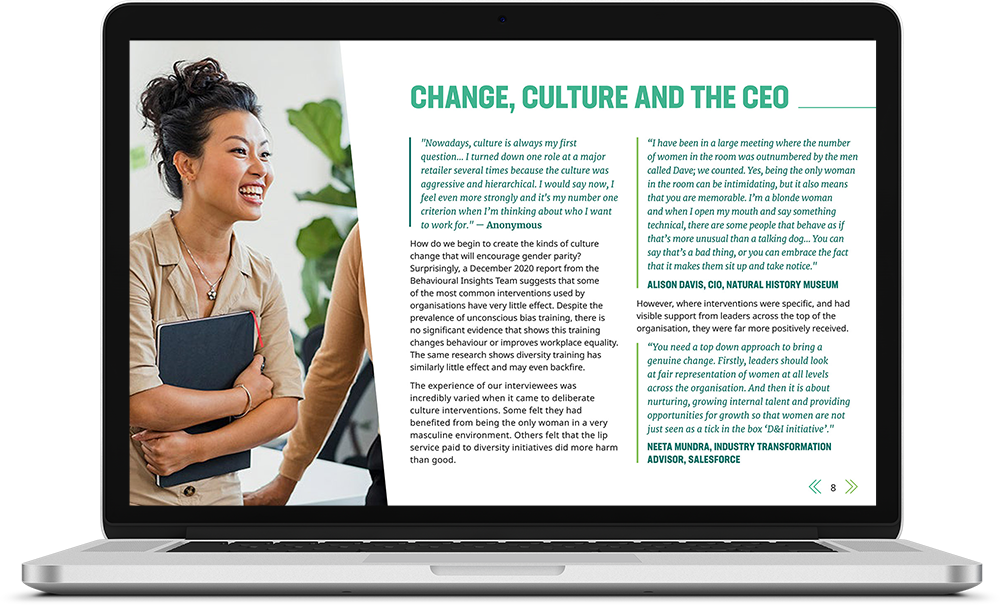Tech’s Leading Women
A video podcast series on lessons in gender, culture, and building an inclusive workplace.

Episode six
An interview with Dame Stephanie Shirley, CH
In the season finale of Tech’s Leading Women, we interview entrepreneur, tech pioneer, and philanthropist Dame Stephanie Shirley, CH. We talk to her about the stereotypes she faced when setting up her company 60 years ago, how her progressive model in the 1960s is still considered pioneering today, if the pandemic is an equalizer for women, and which tech innovations excite her most.
Zoë: Welcome to Tech’s Leading Women, a video podcast series on lessons in gender, culture and building an inclusive workplace. My name’s Zoë Morris, and I’ll be hosting today’s episode. I’m president of Frank Recruitment Group, a staffing firm with more than 20 offices worldwide, specialising in finding and placing outstanding technology talent. This podcast series takes inspiration from a whitepaper we published in 2021, which explored some of the key issues impacting women in tech. In each episode, we’re digging deep into our findings and gatherings, and gathering insight from thought leaders across all corners of the tech world. And today’s guest is a truly a remarkable figure from the tech industry. I’m thrilled to be speaking to Dame Stephanie Shirley, entrepreneur, tech pioneer and philanthropist, who by her own definition has blazed a trail for women in business.
Born in Dortmund in 1933, Dame Stephanie arrived in England as a child refugee and at the age of five was raised in the West Midlands by her foster parents. By the early 1960s, she was a British citizen and about to break the mould by launching her own software company from her dining table. Her workforce was almost entirely made up of women working from home. Yes, you heard that right, she pioneered remote working almost 60 years ago, something that many of us have only just experienced for the first time during the COVID pandemic.
As she accounts in her brilliant memoir, Let It Go, building a successful company as a young woman was no easy feat. Famously, Dame Stephanie adopted the name Steve, in order to be taken seriously, but she was brilliant and tenacious spotting the huge potential for software programming when the industry was still in its infancy. By the year 2000, the company she had founded was valued at $3 billion dollars.
Alongside her success as a businesswoman, Dame Stephanie is a passionate philanthropist and over the years has given away millions of her personal fortune.
Dame Stephanie, who likes to be known as Steve, thank you so much for joining our vodcast today. I’d like to begin by quoting a Guardian article from back in 1964 about you and the fledgling business you’d started. It opens with “Applications are invited from women for post as programmers.” It later goes on to say, “The main qualification is that of personality. It’s a job that requires patience and tenacity, and a common-sense sort of logic. Much of the work is tedious requiring great attention to detail and this is where women usually score. Many find the job boring, others become fanatics about it.” So, Dame Stephanie, can you set the scene for us regarding the stereotypes you faced when launching your business all of those years ago?
Dame Stephanie: Well, back in 1962, when I started my company, women were very much second-class citizens. There were certain activities that we were disbarred from, working on the stock exchange, for example, we were not able to open, well, do any financial transactions. I couldn’t even open the company’s bank account without getting my husband’s authorisation. And there was an expectation that women were in junior roles and that women stopped working on marriage. And if not, then a few of them went on, banks for example did not allow married women at all. But the ones that went on certainly stopped when they had children. And so, I was getting comments like, “Oh, I thought Derek had a good job,” as if the only reason that I should want to go on working was a financial reason. Women have always worked for financial reasons in the North of England, in the Southeast, it’s not so common.
Not only was the difficulty in getting jobs but women earned significantly less than men. I know that we do that at the moment as well, but something like 40% of the male earnings was the average female earnings. So, you know, it was pretty grim.
Breaking into that ground was, well, I will say it was fun, but it was a great challenge, and I was very conscious that I was being very disruptive. People laughed, laughed because I was using all-female workforce but also because I was starting a software house, and software we now know is terribly, terribly important. But in those days software was something that was just given away free with the computer hardware. And so, you can’t sell software, certainly not as a woman. So, it was a difficult start and it sort of girded my loins ’cause the more I find people say, “You can’t do this, you can’t do that,” the more I want to do it. And I think women still will have to be that little bit assertive about what they want, so, it’s never misunderstood.
Zoë: Absolutely, so it almost sounded like the sort of the adversity is the thing that kept you driving that’s really interesting. So, I suppose the model you pioneered back then was seen as hugely progressive. Are you surprised by the fact that so many years later it still considered pioneering some of the things that you were launching back then?
Dame Stephanie: Well, not so much surprised, but just sheer disappointed. It’s taken so long for some of these ideas to become mainstream. But look what’s happened during the pandemic. It moved forward in months, what would previously have taken years, if not decades. So, homeworking is now considered quite a normal thing to do, women working, feminisation of the workforce really taken place. There is still the gender pay gap, which means that women are demonstrably not getting to the top position as the technology has moved on enormously. The other thing I’m quite proud of, and it’s a little bit dubious I suppose, is that I think with my use of freelancers and zero-hour contracts which are very unpopular these days. But I think I really started the gig economy, because I was using entirely freelancers, they were paid from the purchase ledger rather than the payroll. And that allowed me to build up a company without having the sort of financial resources behind me that today’s entrepreneurs start with. It was very different 60 years ago and it is nearly 60 years ago, we celebrate in August. We started on August the 10th. So, I’m looking forward to that with great joy.
Zoë: Excellent, well happy anniversary for this August. So, you described your company as a social business comprised of women for women. But what role did men play in those early days? And did you rely on their allyship back then?
Dame Stephanie: Allyship was something that wasn’t really considered. My husband was my greatest ally, not only providing a regular salary, which allowed me to work for years without drawing any salary, but he also, for example, I got a project, was in difficulty and I needed to troubleshoot. And he took a fortnight’s holiday from his conventional job and stayed home and looked after the baby for a whole fortnight, which is quite something for a man to do, ’cause we didn’t have any help with him. So, it was very much a sort of partnership in the early days particularly.
I mean, culture changes very slowly. And the idea that men should mentor women preceded the concept of men acting as allies. I think they would’ve been somewhat aversed to this because they would feel that they were being…would be accused of a little bit of sexism in the sexual way. And the way in which relationships between men and women developed in those days was quite different. The men were in the senior jobs, the women were very much subservient. If I turned up at a meeting, I would be expected to make the tea and serve the tea, which I did the first time meeting. but the next time I sort of said, “No, I did it last time you do it this time.” And that got over these sort of problems. And you learned all sorts of dodges as to how to search your position, get the opportunity to transfer knowledge and learn. I love to learn without actually being aggressive.
Zoë: Yeah, that makes sense. So, you obviously had an extremely supportive husband. Did you see that same support in the females that you employed, if they had husbands, were they supportive and do you think that helped with the whole sort of journey?
Dame Stephanie: I mean, some husbands were very supportive. I know of one woman who worked from home, she was quite a senior level. Her husband had a senior management job as well and she never stopped it until he left the house in the morning and it was all tied it away before he came home at night. So, although it was not a secret there was no evidence of her working in the mail when home.
Zoë: That makes sense, okay, that’s interesting. So, at what point did you sort of stop and say, “Yes this company is now a success.” And do you think your definition of success is changed over the years?
Dame Stephanie: Well, let’s take that in two stages. I do remember and I looked up the date again – let’s take that in two stages, in 1965, Christmas 1965, I got family friends and over the drinks I was sort of saying, “The company’s flying now.” And it was very small, but it was flying, it was running, it was enjoyable, everything was fine. And we had a toast to the company. In January, and there was ghastly month ever because there was a breakaway group with industrial espionage, and all sorts of things going on, a client didn’t pay, I had a bad debt, which is the first time I’d had one. And so, suddenly the whole thing looked as if it was about to crack. So, there’s never in business, a feeling of, “Yeah, I’ve made it.” Because you have to move on, you have to innovate, you have to be tomorrow’s person, not just yesterday’s.
Zoë: I suppose it’s all about celebrating the successes every day, isn’t it? It’s not sort of stopping just to one, I suppose.
Dame Stephanie: What a working path of success? Most people measure it in financial success which was 25 years before we paid a dividend. So, one would might sort say that’s the long, long time to call a company successful. I think I began to feel successful, about in my late 40s, early 50s. And again, I started the company at the age of 30. So, you’ve got a long time in which you feel you have everything to learn when you’re 18, and I started working at 18, everything is new, when you’re 20, you know a little bit, when you’re 25, you think you know it all, but you’re really just starting to learn.
Zoë: Absolutely, so, many speculated that the pandemic might be an equalising moment for women. And you touched on that in your foreword that you wrote for a whitepaper, but we’ve already seen women have taken on far more household responsibilities, they face the brunt of furloughs and redundancies. So, where do you think we go from here in terms of addressing gender inequality?
Dame Stephanie: I believe that addressing gender inequality should be part of the diversity issue of all the things that you can do in a company to welcome non-binary people, to have black and Asian people on the workforce, to have elderly people, to have young, mixed up in teams which is what you want for a self-creative organisation. The one that makes most difference is getting the women in proper numbers, getting the women on the committees, getting the women up to the board level. And that’s a change that I think we’re beginning to see. Certainly, I do a lot of public speaking and I’m more frequently asked to speak about diversity rather than about women’s issues. And that’s a step forward, I think. We have an International Women’s Day coming up next month, and it occurs to me, “It shouldn’t be just women, we should be thinking in terms of diversity.” So, let’s hope we see some change in that area.
Zoë: Yeah, I totally agree with you on that. So, you talked about how important trust was when building your business, what other qualities or behaviours do leaders really need to embody if they’re going to make a success running a socially-progressive business?
Dame Stephanie: I always recruited by what is now known as value of recruitment. I felt that I could teach, or arrange for somebody else to teach any skill that was required in the organisation. What I can’t teach is culture, and things such as trust and integrity as we’re finding today in the political field are so vital. This is what a leader does. This is what you have to have. It helps if you are clever, it helps if you are good health, it helps if you are good with, really enjoy working with people you may not need technical skills for what you must have is the people skills and trust and integrity. Otherwise people will not follow you. They is just saying, “Come this way.” You actually have to persuade them that that’s what they want to do. And so, that they come willingly and enthusiastically not dragging around in the Vanguard.
Zoë: No, and I think it that’s so important to the sort of the workforce of today. It’s much more than just about getting a salary at the end of the month. They want to be part of an organisation that means something, that has a purpose and has values. What would be your advice to women today looking to launch a tech startup, is there anything that remains universal today when you think back to when you started your company all of those years ago?
Dame Stephanie: Well, other people started technical companies and failed. Most new companies do fail, of course, but the ones that survive are marketing-oriented – they’re following what the customer might want, does want, has said he wants, not what the organisation wants to deliver. And that’s a big step forward to get the company customer-facing and considering marketing rather than just the technology.
Zoë: And, so, what would be your advice today to women looking to launch a tech start-up? Is there anything that remains universal when you think back to all of those years where you were launching your organisation?
Dame Stephanie: Advice to women, setting up a business is exactly the same as the advice I would give to a man. Don’t just think of the technology but consider far more the marketing of it, what customers or potential customers do want, might want, say they want, are prepared to pay for, rather than delivering what you think they might like. And that market orientation has to go right through the organisation. It’s not just something that stays in the marketing division or the marketers, everybody, chief executive down to the receptionist at the door, knows that that’s what they’re in business for; to sell, to promote, and to market. The other big thing that’s changed in business today is the need to raise funds. Now, I started with literally, you will laugh, six pounds, worth about 100 pounds in today’s terms and managed for years by funding the organisation by my own labour and by a second mortgage on the family home. But today people go out and raise money before they’ve ever really started or made certain, before they’ve made a profit. And therefore, if you’re going to go that route you do have to be able to fundraise, and that takes presentation skills, it takes a certain personality, it takes a certain image, I think, to sell to people who are going to give you money in the hope that they will get a return.
Zoë: Yeah, that makes total sense. And what changes in innovations within the tech world would you encourage most?
Dame Stephanie: The one I would go for is virtual reality, ’cause that’s hardly been exploited. I did my first virtual reality job in 1999, and it’s moved on a lot from then, but it still has an enormous way to go in terms of the theatre of art, music, experiences. I think the world will look very different in 50 years’ time from the point of view of virtual reality you are immersing yourself into a new universe, really, it’s artificial, but it allows you to be the ballet dancer. It allows you to sing the opera. I just think has enormous potential. The other one of course is artificial intelligence, but that has been, and is being developed quite fast, now. I was the initial funder for the Oxford Internet Institute. And that is doing research work, for example, on all aspects of life online but including how to deal with misinformation, how to distinguish disinformation, there’s so much work going on in that area that I don’t think it has the same potential as virtual reality.
Zoë: So, I’m sure we’ll look back on this interview in five years’ time and it will look very archaic. So, this is part of a series we call, “Tech’s Leading Women” and for many people you are the first woman that springs to mind when they think of an inspirational female leader in this industry. But I’m really interested to find out who inspires you.
Dame Stephanie: I’m inspired by lots of people, really, including people that I read, things that I read in books, I’m enormously inspired by Sue Black who is encouraging a lot of women into STEM and she has managed, she’s at Durham University, and she has managed to transform that university into a hotbed of training for young people. She’s not an entrepreneur, she’s within a university but she’s setting up a really worthwhile business. The other one is very different. I’d like to suggest that, Anne Boden, of Starling Bank has inspired me. So, this is a lady who in her mid-50s said, “I’m going to start a bank.” And the sheer positivity of that, and the fact that with difficulty she has made it, makes me think that she’s a good role model for me and others just to show that it’s never too late to innovate and make things happen.
Zoë: Yeah, I think that’s a really important point, you’re right, it doesn’t matter what age you are. There’s always creativity that can bring through. So look, thank you so much for chatting with me today and sharing your views and experiences. It’s been a hugely thought-provoking conversation. I feel massively honoured to have spent the last half an hour with you and I’m sure our audience will have enjoyed it just as much as I have.
For those of you interested in finding out more about Dame Stephanie’s amazing story, you can order a signed copy of her extraordinary memoir, Let It Go, and a collection of her favourite speeches in the book, So To Speak, by emailing lynn@steveshirley.com. And all proceeds will go to her charity, Autistica. So, thanks again for listening and I’ll see you next time.
Meet the line-up
Host

Zoë Morris, Frank Recruitment Group
Guest

Dame Stephanie Shirley, CH
About Tech’s Leading Women
Tech’s Leading Women is a vodcast series inspired by a recent whitepaper published by Frank Recruitment Group, spotlighting some of the key issues facing women in the tech industry today.
In each episode, we explore a different topic in more depth, with unique insights and opinions from inspirational thought leaders across the tech world.



